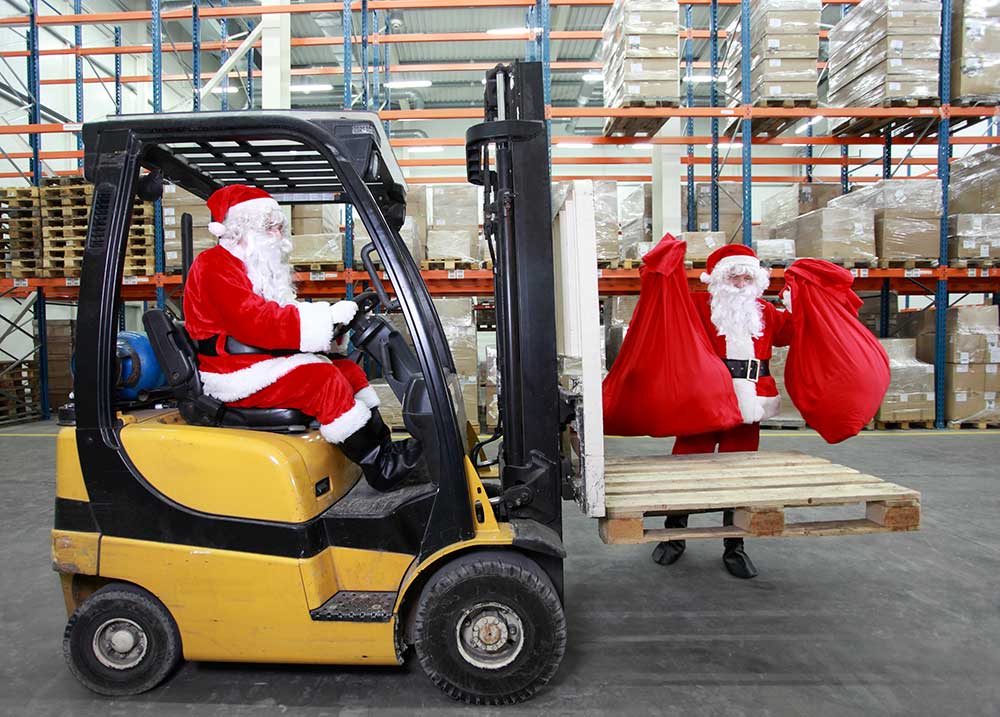The extreme port congestion and container shortages that drastically reduced shipping out of Southern China last month have eased, but as freight volumes from Yantian and other Pearl River Delta ports recover, the rebound will send another wave of disruptions through the troubled global shipping network, according to American Shipper. “Ocean shipping experts say the cascade of released freight from Yantian will soon add to port congestion and vessel delays at major ports around the world, including in the U.S.”
OEMs and distributors in many industries are preparing for months of continuing delays. Some are ordering holiday merchandise weeks earlier than usual. And even with advance orders, the “global shipping backlog threatens to leave many gift buyers empty-handed this Christmas Season,” according to Reuters.
Reuters’ reporting team interviewed a wide range of managers at manufacturers, distributors, and retailers who predicted shortages of holiday gift items. “It’s too late for Christmas,” said one Amazon-based seller of laptop docking stations. “We’re hundreds of containers behind where we should be at this point,” said the CEO of a firm selling Christmas trees and other holiday décor.
Reuters and other media are also reporting on some creative workarounds. Exploding Kittens, which makes kids’ games like Throw Throw Burrito—“the world’s first dodgeball card game!”—has given Walmart and Target the go-ahead to import their orders directly from foreign ports. “Because the two retailers are among the top U.S. importers of containerized goods, they may get priority access to containers and space on cargo ships,” according to Reuters.
The Wall Street Journal reported in mid-June that off-highway vehicle maker Polaris was adapting to parts and materials shortages by shifting their product mix on a daily basis. “When there aren’t enough seats in the supply pipeline to produce four-seat versions of utility terrain vehicles because of a shortage of foam padding … Polaris shifts production to two-seat or three-seat models. When more seats become available, factories circle back to four-seat models or add the missing seats to vehicles that have already been assembled.”
COVID resurgence prolongs supply chain pain
Compounding the shipping stress is the uncertainty about COVID-19, which is still surging in much of Asia. It was an outbreak in the vast Shenzhen manufacturing and export hub that led to infections among dock workers and the sharp cutback in shipping out of Yantian, Nansha, and Shekou.
Thailand, Vietnam, and Malaysia are among the countries experiencing surges of infection. Low vaccination rates throughout Asia are leading authorities to keep social distancing rules and travel bans in place, and these are expected to continue to disrupt manufacturing and logistics, according to the Wall Street Journal.
Of the thousands of suppliers Resilinc has mapped in these regions, many have had operations disrupted by government-imposed lockdowns and labor shortages. Dozens of industries including automotive, life sciences, high tech, home goods, and cosmetics have been impacted.
In the background of the current turmoil: ongoing conversations in supply chain circles about re-shoring or near-shoring supply chains to reduce the complexity of logistics and dependency on Asian countries. The recent disruptions underscore this dependency, as Yantian and the other two ports serving the Shenzhen area shipped almost 12% of the United States’ seaborne imports in 2020—a 67% year-on-year increase from 2019, according Hawaii Foreign-Trade Zone’s Trade News Weekly.
As discussed in recent Resilinc blogs, deciding to re-shore, near-shore or otherwise reduce dependency on Asia is a highly complex topic fraught with difficulties—including the hidden dependencies on lower-tier materials and parts suppliers from Asia that won’t be visible to supply chain managers without a comprehensive multi-tier supply chain map.
For supply chain managers taking a long-term view of near-shoring options, Canada, Mexico, Central America and other Latin American nations may represent the greatest opportunities, according to a recent Harvard Business Review article by Resilinc CEO Bindiya Vakil and co-authors Tom Linton and Dale Rogers.





